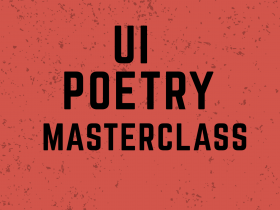The person (being me and anyone who finds the shoe a fit) who this poem would reach out to is someone who has worn her sad like a uniform too long and is tired of the way it hangs useless on her body, how it grips on parts it should let go and lifts with the wind of endless sad experiences.
Konya Shamsrumi: What is the process of writing a poem like for you? Is it a lot of hard work or easy? James Eze: Any writing that requires the use of the imagination does not come easy to me. It is often a cross between inspiration and hard work. For me, the process of writing a poem begins with an inspiration and ends with a lot of hard work. Usually, it comes in form of an idea, a thought or an impulse in the deep recess of my mind which could be triggered by an experience, an observation or a flash of insight from a book, a song, a movie or a mere ripple on the face of a stream.
Still young, you reshuffle positions, change a thing or two, furnish and finish rough edges. This editing process is a continuous loop, much like a refining process of wine. At a point, you just must stop and let time make the poem age into something even sweeter!
Still young, you reshuffle positions, change a thing or two, furnish and finish rough edges. This editing process is a continuous loop, much like a refining process of wine. At a point, you just must stop and let time make the poem age into something even sweeter!
Let me say this: writing a poem somehow saves me. In the sense that, an animal of experience has been let out its cage, has been given freedom: an experience has left me so it loses the power to taunt me. In giving my experience the luxury of language, I have freed it and in turn freed myself. For instance, writing about my depression has greatly helped me cope with it.
















